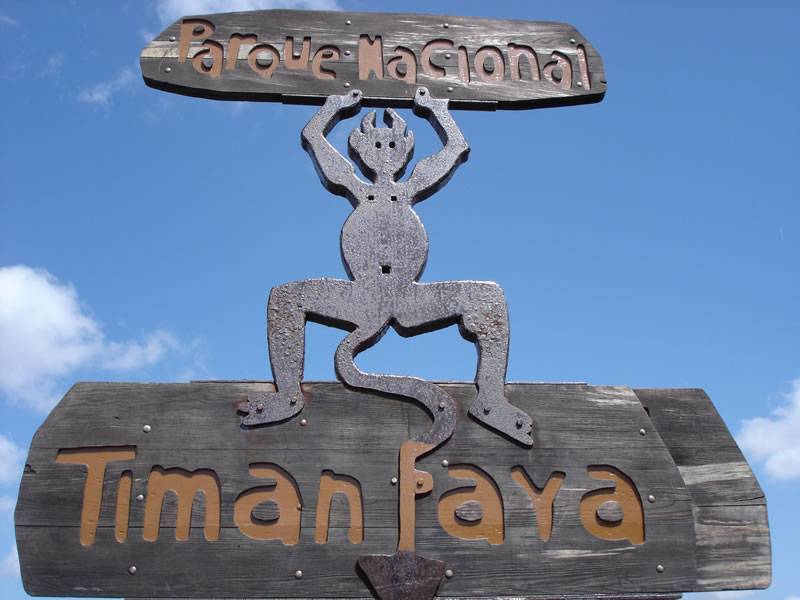
20-07-2017 Discover Lanzarote
Excursie ten zuiden van Lanzarote, vulkanen van Lanzarote
You do not want to do many miles, but you do not want to miss the most volcanic areas and discover the most emblematic attraction of Lanzarote, the "Timanfaya National Park, then your choice is the excursion "South Tour". Volcanism in its purest form!
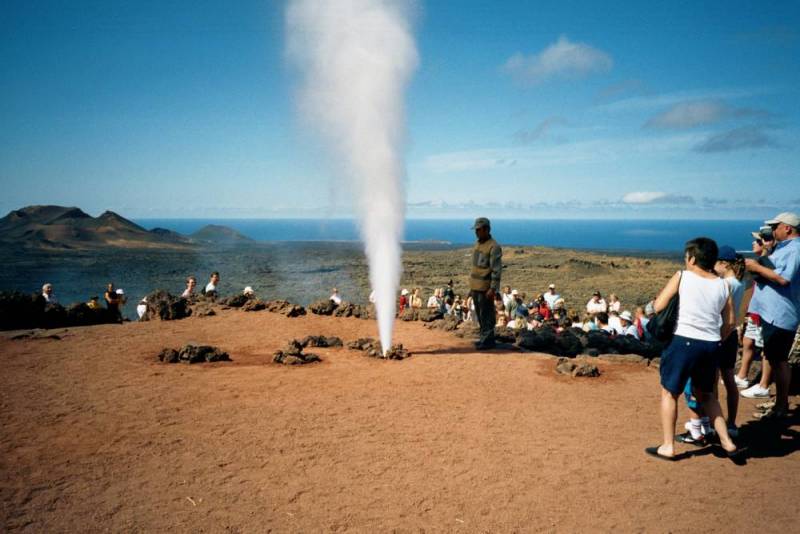
20-07-2017 Discover Lanzarote
You would rather return to the hotel for lunch! a short and fun tour!
This short and fun tour, "Short South", through the south of Lanzarote is the ideal and fun excursion for families with children or for those who wish to have lunch at the hotel and enjoy a quiet afternoon on the beach or by the pool. We propose you, a trip back in time to the volcanic heart of Lanzarote with us : the "National Park of Timanfaya" Firstly, we will see the impressive geothermic demonstrations where we’ll feel the heat which still exists just a few inches beneath our feet.
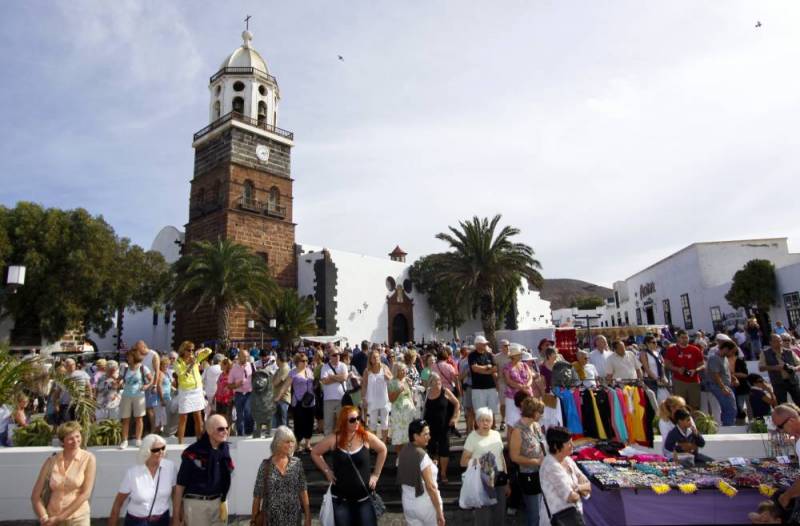
19-07-2017 Discover Lanzarote
A day out shopping, enjoy a vibrant market with typical products
If you want to enjoy a vibrant market and take advantage of the Sunday morning to go shopping, for that, the "Teguise Market excursion" is ideal. The streets of Teguise offer you all kinds of typical island delicacies, famous goat cheeses, all kinds of Aloe Vera products, prickly pears, island sweets and a long etcetera. Likewise, the craftsmanship is very varied. Teguise, is a town full of life. In the main square,Canarian folklore entertains the market. On Sundays some of the centuries-old houses are turned into museums, bars, restaurants or art galleries with a unique charm. Advice: try the typical products, like Cheese, Wine, Tapas, Churros…., and take part in the dances.
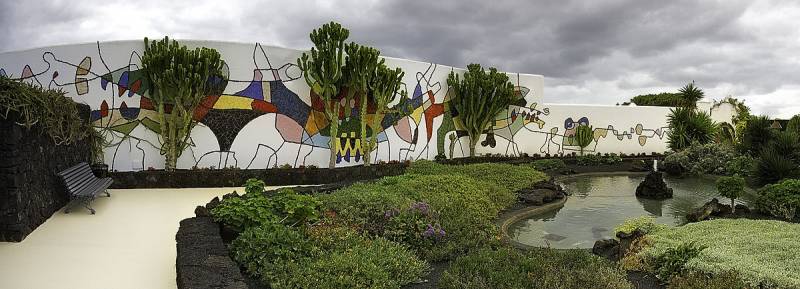
17-06-2017 Lanzarote Highlights Discover Lanzarote
César Manrique Foundation
The installations that currently constitute the headquarters of the César Manrique Foundation are comprising the spectacular house of the artist, the dependencies that occupied the domestic service and the garages. The whole of the space was recycled by César Manrique himself to reconvert it to its new function of museum space and administrative and service infrastructure.
The house is built on a 30,000 m² estate, which extends over a lavage lava from volcanic eruptions on the island of Lanzarote between 1730 and 1736. On his return from New York in 1966, César Manrique decides to settle permanently in Lanzarote. That same year he began to build this domestic architecture.
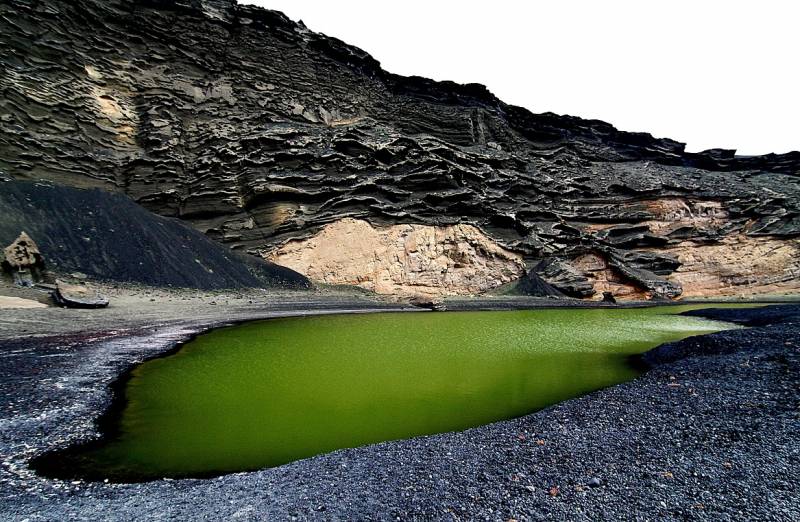
16-06-2017 Lanzarote Highlights Discover Lanzarote
El Golfo - Lago Verde
EL “CHARCO DE LOS CLICOS” OR THE GREEN LAGOON
On the west coast of Lanzarote, near Yaiza, we find a landscape full of contrasts. In it, the crater of an ancient volcano plunges into the Atlantic Ocean creating a lake known as the "Charco de los Clicos" (green lagoon or Clicos lagoon), declared a Nature Reserve and included in the Volcanos Natural Park and which surrounds the Timanfaya National Park. Its green hue is caused by a kind of seaweed Ruppia maritime that is found inside and the sulfur content contained in its waters. The pool contrasts with the black sand of the so-called El Golfo beach and the blue of the sky and the sea. It has a length of about 100 meters and is connected to the Atlantic Ocean by underground cracks.
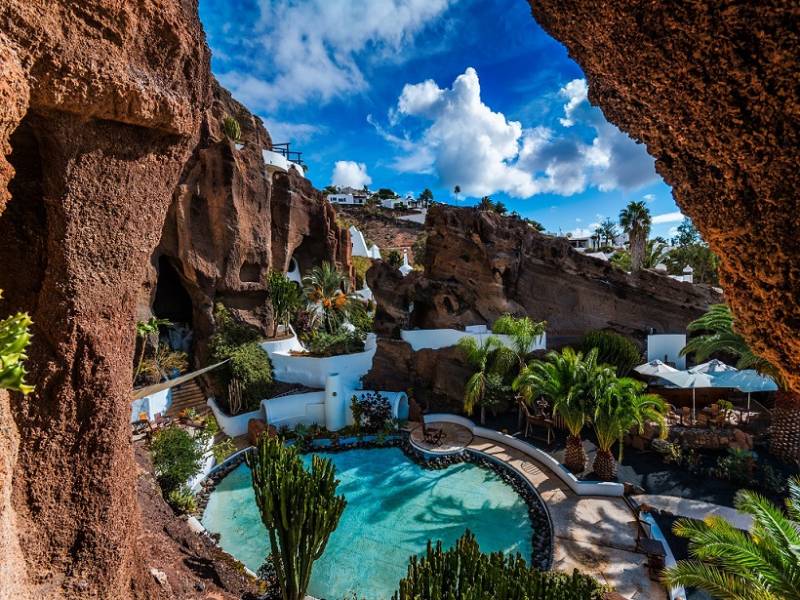
16-06-2017 Discover Lanzarote Lanzarote Highlights
Lagomar
One of Lanzarote’s most spectacular private properties, majestically formed around the same rocks from which it was built, a volcanic quarry with natural labyrinths and caves. A truly spectacular work of art created by Nature from the molten lava which once flowed down these same slopes of the ancient volcano above LagOmar.
Originally conceived by César Manrique and designed by the artist Jesús Soto for the British developer Sam Benady with an architectural vision which could evoke mental imagery from the Arabian Nights mythology.
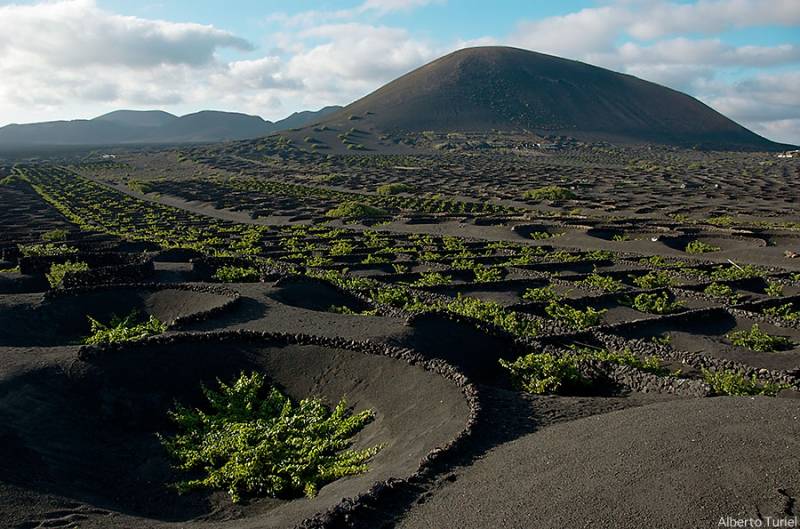
16-06-2017 Lanzarote Highlights Discover Lanzarote
Wijnroute La Geria - Lanzarote
The volcanic eruptions that buried much of the island of Lanzarote in the eighteenth century created surprising landscapes that have been exploited by the hand of man through the centuries to the present.
One of the areas most affected by the eruptions were the interior valleys of Lanzarote. Some areas were covered with more than two meters of lapilli (those little black volcanic stones that locals call picon). Through trials, peasants discover that the remains of the volcanic eruptions helped to preserve the low humidity that moistens the fields of the island. These little stones have a great capacity of absorption, they attract the humidity and they keep it in its interior. Cultures covered with this type of volcanic stones naturally maintain moisture, something very valuable in an island like Lanzarote.




